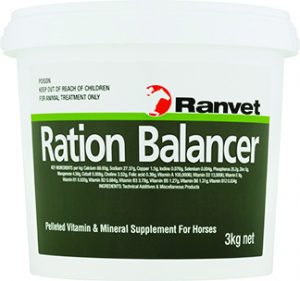Saving on your feed bill
We all know how expensive it can be to own a horse and the cost of keeping a horse seems to be increasing constantly. With feed, tack, vet bills, farrier costs, and everything in between, it’s easy to feel overwhelmed by the never-ending dollar signs. As many face a period of financial uncertainty, you may be looking at ways to tighten the girth on your feed bill and make some savings.
Being a horse owner will never be cheap, but there are certainly ways to we can cut back on feed costs. Cutting corners in any way that could compromise your horse’s health and welfare is never the solution to saving money. But here are a few thrifty tips that could see you make some significant long-term savings when it comes to your feed bill:
Hay:
One thing you should never skimp on for your horse is the quality of hay you’re feeding. Where possible opt for the best quality hay available that suits your horse’s needs. Ultimately, feeding cheaper, poor quality hay is false economy, due to its lower nutrient content and inferior digestibility, greater quantities must be fed for your horse to maintain condition.
You’ll face a larger upfront cost, but it will save you money in the long run if you buy a year’s worth of hay during harvest time. Buying quality hay can be expensive, but hay is usually the least expensive in spring and through summer. Hay prices steadily increase throughout autumn and winter, so the more hay you purchase early on, the more money you’ll end up saving. Buy bulk quantities out of the paddock where possible and transport the hay yourself for even greater savings. Most dealers/ growers will give you a discount if you take hay right from the paddock after cutting.
Hard Feed:
Bulk purchases of grain can be considerably cheaper than buying premix feeds by the bag. Buying grain either by the silo or the pallet-load can work out a whole lot cheaper. By mixing your own feeds you can target purchase on the grains you require to meet your horse’s nutritional needs. You can avoid paying for the additional fillers that are often used in premix feeds and that your horse may not necessarily need. Even if you can’t buy your hard feed in bulk quantities you may find that by purchasing bags of grain and mixing your own hard feed can save considerable money even on a smaller scale.
Consider a ration balancer:
Ration Balancers contain concentrated levels of amino acids, vitamins, and minerals. They often negate the need for additional supplementation and they typically have lower feeding rates. Most adult horses can obtain the required nutrients by consuming as little as 30grams of a quality Ration Balancer per day. Consider the quality of the supplement that you are feeding out. Don’t cheap out on supplements, you’ll get the best value with a product formulated by a reputable manufacturer and containing high quality ingredients.
Experts in Equine Nutrition
Every product in the Ranvet range has been developed to meet a horse’s most specific need at any given time, be it in a training environment or on a breeding farm. Having pioneered the formulation of specific medications and dietary supplements for horses, the company is now recognised as a leader in the areas of equine health and nutrition.

